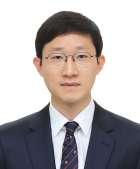About
World’s Best Department of Computer Science
Department

Head of the
Computer Science and Engineering
Prof. Hakjoo Oh
The Department of Computer Science and Engineering at Korea University aims to foster software talent in graduates with creative thinking, create customized research personnel through industry-immersed education, and advance globally competitive leaders capable of leading the development of software-based interdisciplinary technology. Based on innovative educational programs and world-class research, it is maturing into a world-class department in the age of information convergence.
The department is actively cooperating with government agencies, research institutions, and business in Korea and around the world. It is conducting practical research and developing technology under cutting-edge research projects. The lecture rooms and laboratories are equipped with the latest multimedia equipment. The vast range of experimental facilities includes a VR experience room and 3D printing room. Students have access to seminar rooms for creative research and independent learning. As a result, many student clubs have attained excellent results in programming competitions (e.g. ACM-ICPC) and technology and startup competitions, both at home and abroad.
All members of the department, including faculty, researchers and staff, are dedicated to the fostering of creative IT talent, convergence of education and research, and research with global competitiveness.
Education Details
Computer science, which is the core of science and technology and the advancement of society, has seen rapid developments based on interdisciplinary collaboration. The department provides basic education for students to acquire solid background knowledge, and offers a curriculum that actively responds to the changing demands of computing technology. In doing so, it aims to instill creative problem-solving skills and to encourage holistic talent in individuals who can drive positive changes within the computing paradigm.
The core competencies targeted by the curriculum are 1) the implementation of human-centered computing, 2) software platform design and 3) massive data processing and knowledge engineering. The curriculum is composed of six mandatory courses and over 50 electives, and is continuously improved to reflect the latest trends. Students can gain real-world experience through practicums, receive support for technology-based startups through related courses and programs, and participate in laboratory internship programs to prepare for graduate study. (See “curriculum” for more details on the educational program.) In addition, interdisciplinary learning is encouraged through various double major and interdisciplinary major programs.